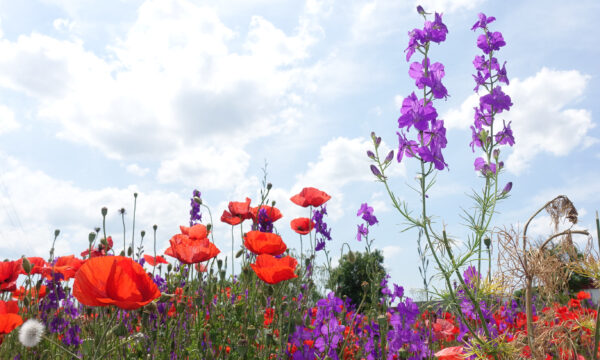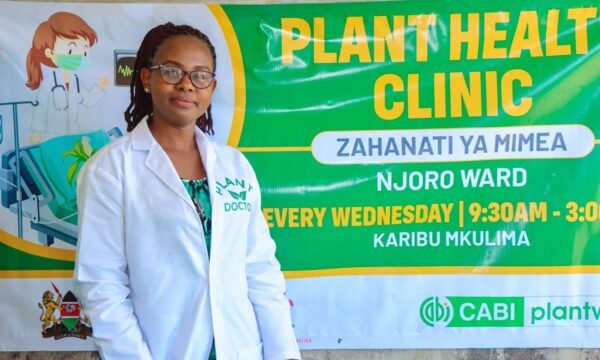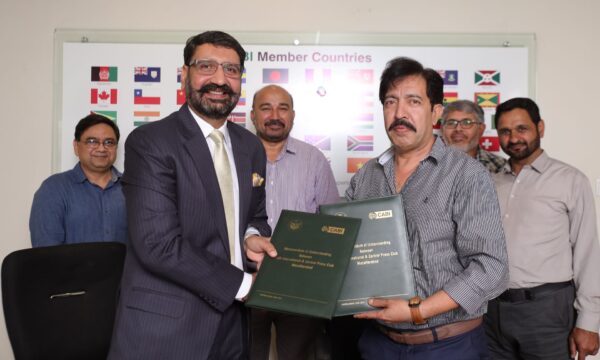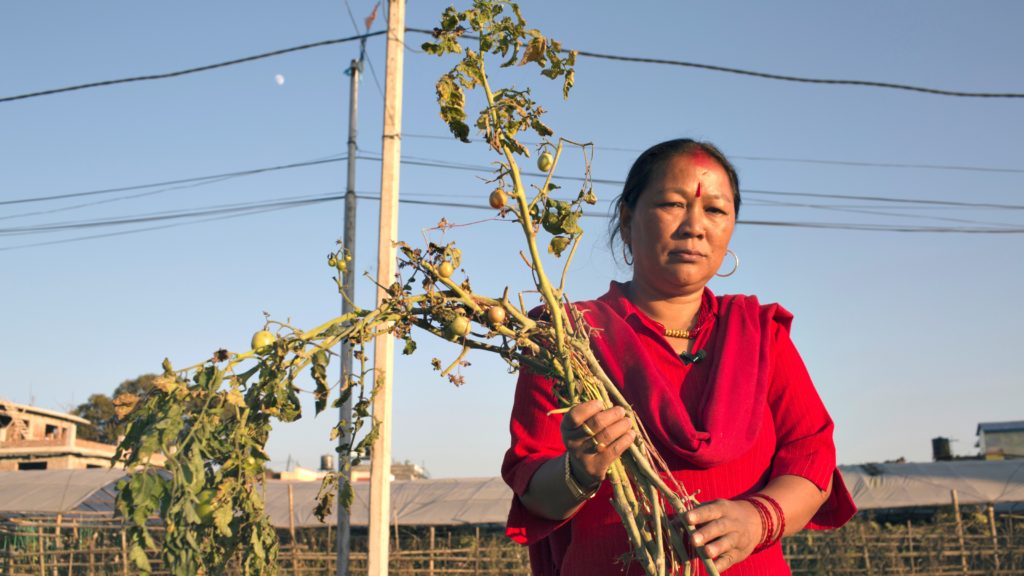
A farmer has to organize a thousand things before getting the final returns from the crop they planted. Choosing the right season and variety of crop, managing the labour forces during the critical crop periods, water management or waiting for rainfall, crop nutrient management, harvesting the crops, managing the post-harvest losses, and then finally selling the crop products are all crucial steps for any farmer. However, most of the time, along the way farmers suffer because their crops have been blighted by plant pests and diseases and ultimately this results in having lower or even no returns from the crops.
Mr. Ramesh Prasad Koirala, a Nepalese farmer from the Syangja district was full of hope when his chilli and cucumber plants were growing well with beautiful blooms and small fruits on his small piece of land of around 1000 square metres. But all of sudden, his chillies started wilting and his cucumber leaves collapsed.
For many people in developing countries, finding a job is very difficult. There are thousands of young people just like Ramesh who have returned from foreign employment to start up a small business in their own country with the hope of earning some money and spending life with their families. However, starting a business demands plenty of investment and other technical ideas. In the end, many choose farming on their own land.
However, disasters come to their crop, discouraging people already involved in farming while also making others think twice about choosing to farm. This means many people are leaving farming behind or not farming in the first place at all.
If we try to find out the critical answers for why crop failure occurred, we learn: crops exposed to various environmental conditions face many problems. Obviously, this demands a technical knowledge on which farmers are often limited. So, they need to be backed up by trained extension officers or experts. But – as is often the case – what if there are lots of farmers but a limited number of technical experts?
Plant clinics are an innovative extension tool; farmers meet with a plant health advisor – or plant doctor – to answer their questions. This advisory service approach is reliant on the farmers because farmers are a fundamental part of this system; bringing samples up to the plant clinics and giving plant doctors the opportunity to check plant health problems in one place instead of going to individual fields to carry out the same job. But again, what if there are limited numbers of plant doctors and high demands of clinic services?
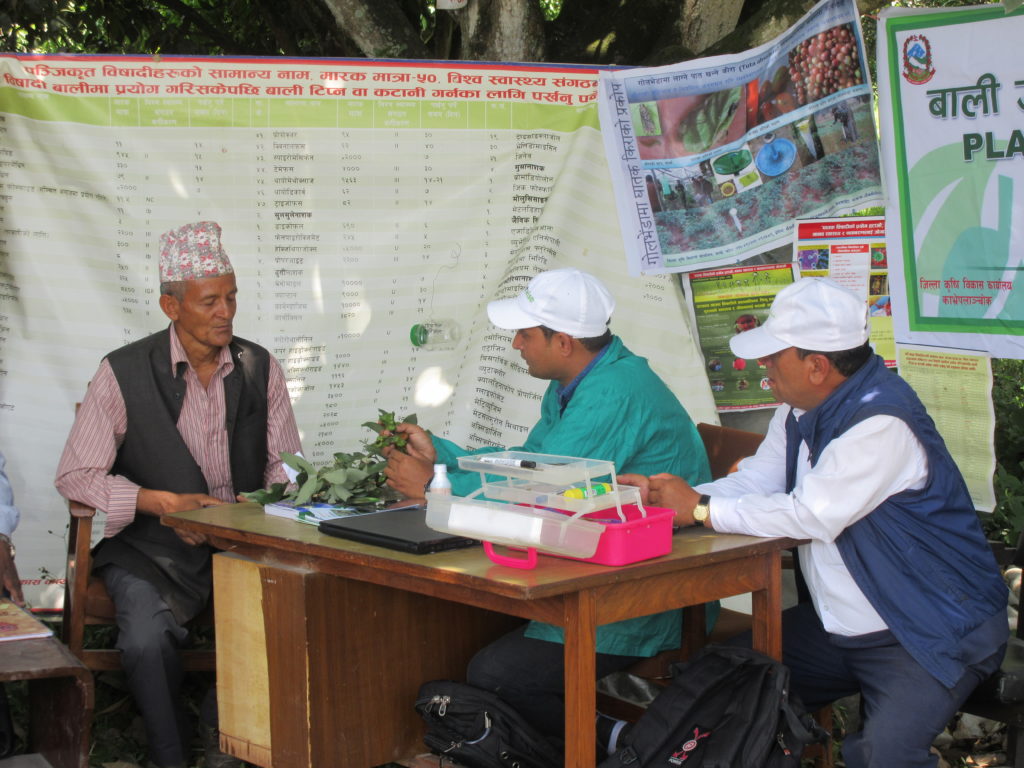
Nepal came up with an idea for this scenario where there were a number of integrated pest management (IPM) farmers facilitators, all with plenty of experience working with crop pests and their ecological dynamics. The Plant Protection Directorate (PPD) selected thirty-eight such facilitators and provided the Plantwise Module 1 & Module 2 trainings with support from CABI Plantwise and FAO Technical Cooperation Programme (TCP). Most of them were actively involved in operating plant clinics with the further technical back-up of Plant Protection Officers, who were solely responsible for providing plant health services to the farmers in their own districts.
According to a study carried out by the PPD, fifty-four percent of the total population of that study area were receiving services from a Farmer Field School (FFS) or Plant Clinic linked service. All of the farmers were satisfied with the service they received from farmers facilitators. All of them got the service on time, even via telephone communication in the absence of plant clinic event, the advice they received still proved helpful on getting the problem solved. In addition, the inputs recommended by farmer facilitators were locally available because of their local knowledge, and the advice helped them to adopt new technologies and practices.
Another added benefit is that the farmer facilitators speak in local languages which farmers can understand very easily, meaning the level of trust with the farmer facilitator is very high. Easy handling of every situation, use of local languages (including use of culturally-specific body language), and easy interpretation of technical terms all contributed to positive interactions between facilitators and farmers. Facilitators even know the soil type of particular farms and have knowledge about the altitude and topography – these diverse aspects of Nepalese farms being normal for them. Two-way communications between facilitators and the farmers was also observed to be very easy and actually clearer than the highly qualified plant doctors. This was because the facilitators spent at least one season cycle at a FFS with the farmers who attended their plant clinics.
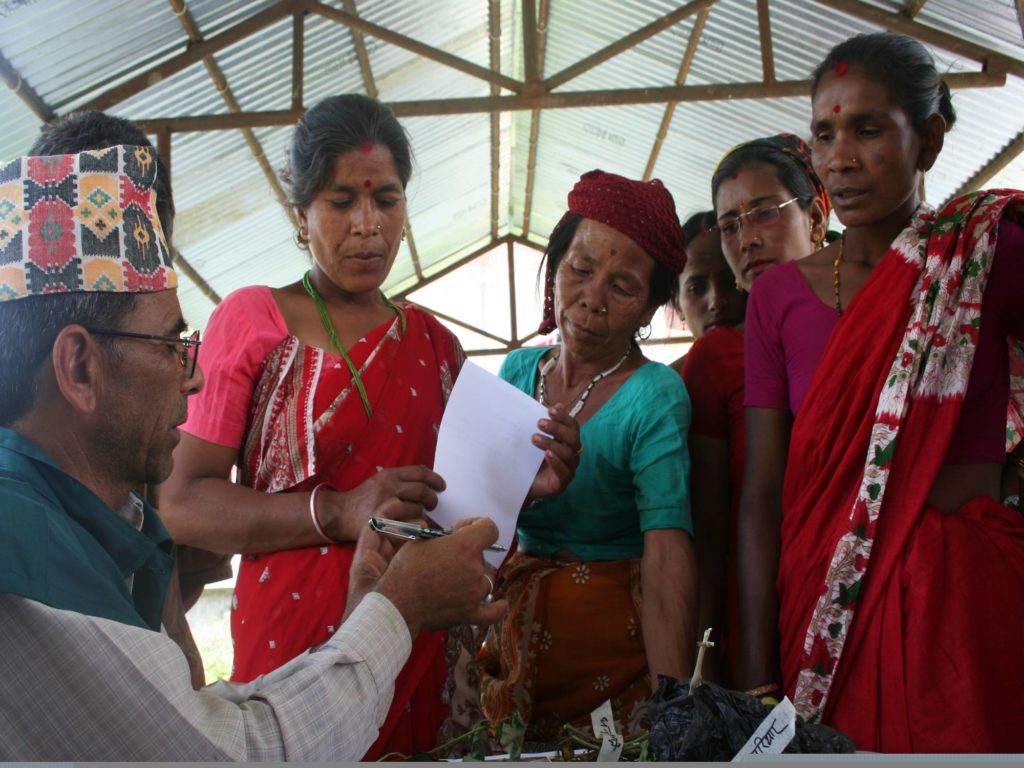
It appears that lead farmers can be the better option for providing plant health services. A question might occur, why was there the failure of two successive crops of Mr. Ramesh Koirala? The major reason was that without plant health service providers, Mr Ramesh couldn’t receive a timely disease diagnosis and recommendation. Although there is the Agriculture Knowledge Centre (AKC) at the district level and the provision of Agriculture Division in all the municipalities, there just isn’t technical manpower locally available as yet. Mr. Koirala had visited the AKC seeking guidance on the problems of cucumber with Downy Mildew disease but there was no answer at that time because it was too late.
Building more plant doctors by training more farmers facilitators is a good strategy for Nepal where there are lot of farmers still waiting for plant health services. It has already been tested successfully in Nepal that farmers can better serve for the farmers’ problems.
With contributions from Shalik Ram Adhikari, Agriculture Knowledge Centre, Syangja
Find out more about Nepal’s plant clinics:
earthrise visits Nepal’s plant clinics which help farmers manage pests with eco-friendly methods.
Header photo ©Brian Sokol for CABI. All other photos ©CABI.
Related News & Blogs
How does crop rotation help keep pest populations in control?
Crop rotation is a simple, effective way to manage pests, improve soil health, and boost yields. Suitable for all growers, crop rotation supports sustainable agriculture and reduces the need for chemical inputs. By targeting pest lifecycles and reducin…
6 June 2025


